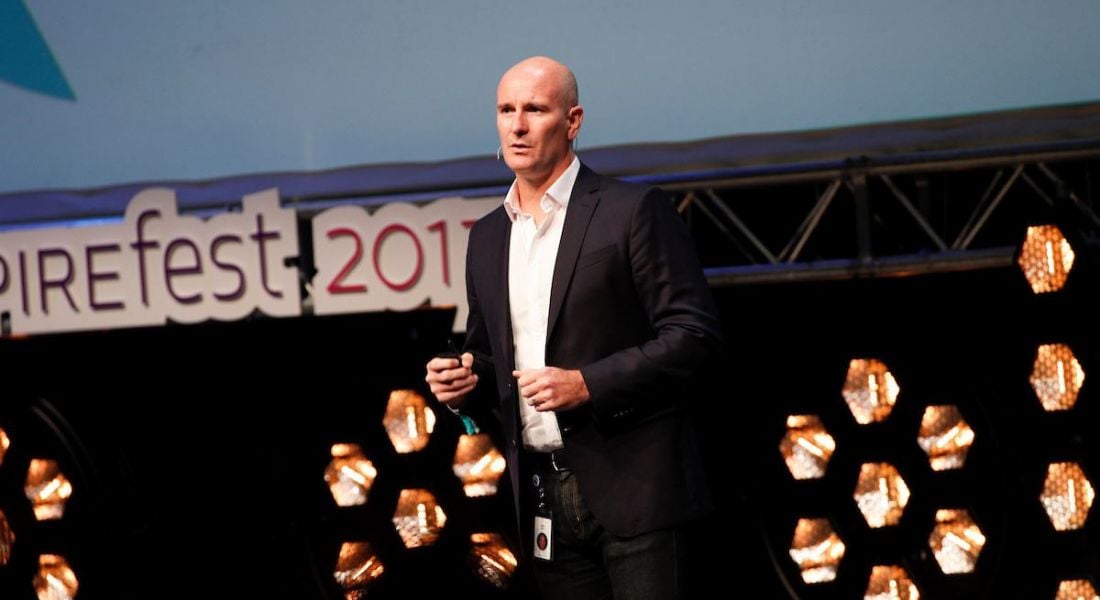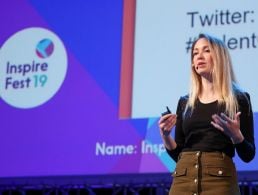The company culture at any organisation is one of the most important things, and this definitely rings true at Facebook.
Facebook is arguably one of the most exciting tech companies in the world to work for. It was one of the first to drive the relaxed start-up-style culture that we’re all so used to seeing today.
But what is the company culture really like? What does Facebook look for in its employees? And what can potential employees expect?
Colin Graham is the director of international compensation and benefits at Facebook. He spoke at Inspirefest 2017 – which took place at the Bord Gáis Energy Theatre in July – about the people practices that Facebook is focused on at the moment, providing some insight into what the work environment is really like.
“Everything at Facebook starts with a mission,” said Graham. “We don’t have a lot of policies and procedures, but our values guide how we act and think as a company.”
Graham took the Inspirefest audience on a journey of what values are most important to Facebook.
“Being open is core to how we think and operate,” he said. “We make as much information as we can visible to people. We share much more than most companies do.”
Graham mentioned the fact that Mark Zuckerberg participates in a Q&A with employees every week and that he is at his most engaged when they ask tough questions. “People at Facebook like to ask really difficult questions,” he said.
Facebook has come a long way. When it started, the idea was to “move fast and break things” because, if you don’t break things along the way, you’re not moving fast enough.
However, as Facebook rapidly expands and is hiring people all the time, company culture can change. “The one thing that we’re most concerned about is culture and how we maintain the parts of our culture that made us who we are today, but also recognise that we’re going to have to let some of that culture go.”
Working at Facebook
While the company stays on top of maintaining the best parts of its culture and changing the necessary parts, what do those who want to work at Facebook need to know? What kind of people does Facebook look for when recruiting?
Graham said it seeks people who want to build.
“We’re looking for people who have that mentality of dissatisfaction with the status quo, the people who are prepared to satisfy good in the pursuit of great” he said.
Another important part of recruiting and retaining talent is getting the right managers. Graham said that when Facebook discovered its managers were the least happy group of employees four years ago, it had a manager amnesty, in which it discovered that many had gone down that route simply because they felt it was a necessary form of progression.
“We deliberately created dual career paths, so you can continue to progress through the organisation and get bigger jobs as an individual contributor and as a manager.”
This means those who really want to be managers can go down that route and those who don’t can continue on their own path.
“You will never be asked the question at Facebook, ‘What are your weaknesses?’, because people don’t really care what your weaknesses are.”
He also said that diversity is extremely important to Facebook, citing 80 different nationalities within the Dublin office. “We built up a training programme called managing bias and we believe that it was so important that everybody in the company had to go through it.
“We put so much effort and energy into hiring the best people and we really want to retain those people for the long term.”
Graham said Facebook has worked towards building a work environment that is complementary to its employees’ personal lives, particularly parents.
“We’ve invested an awful lot in family, including providing fathers with four months’ paid leave.”
“There’s so much more we can do in terms of the impact that we can have on the world,” he said. “That’s equally true internally in terms of the work environment that we build.”




